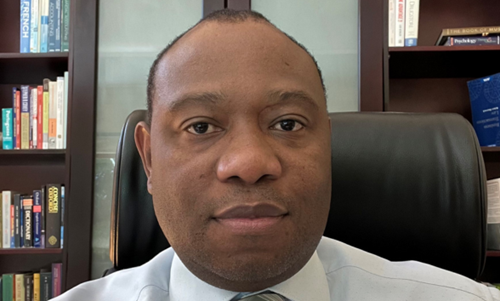13 July 2023

Written by Milpark Communications
Benett started thinking seriously about doing his MBA six years ago, though he recalls that the idea popped into his mind in about 2012.
“It was sparked by an internal desire to progress, but I was also, coincidentally, exposed to someone who had recently completed his MBA and I was impressed by how it had advanced his career. It catapulted him to the top. Watching that, and seeing the external perception of the course, made me hold on to the thought,” said Benett.
Then life happened, and Benett made a career move that saw him leave the corporate sector and take on an entrepreneurial role as the country lead for a budding startup. The position required him to get involved in all the functions of the business, essentially acting like a company owner. He grew fast, but the job also exposed his own professional limitations.
Pursuing progress
“When you’re in a functional role in a big organisation, you only focus on your space. When you move into being responsible for the entire function, you need to learn how to operate as an orchestra conductor” – a challenge that seemed beyond the scope of his skillset at the time.
Rather than getting discouraged or opting to outsource certain business needs like financial management, human resources or strategy development, Benett made the decision to improve his own knowledge, widening his skillset so he could better manage the business. In 2019, he registered for an MBA with Milpark Business School.
A learning-focused environment
Bennet was cautiously hopeful going into the MBA. He’d already spent much time and resources seeking the guidance of business mentors and various coaches whom he believed would help him plug the knowledge gaps he’d identified in himself. The attempts were useful, but not to the extent that he had hoped – he carried several battle scars and business mistakes to show for it.
Interactions with his corporate peers in the MBA programme exposed the degree to which departments in big businesses often work in silos, highlighting the value of the programme beyond the lectures and curricula and reinforcing the role of connections within the student cohort.
From a formal perspective, Benett found the teachings on critical analysis to be most valuable. He came to understand how interlinked various functional business areas are, though he had never considered them to be, citing the knock-on effect marketing has on production as one illustration.
The Covid challenge
Part of the first MBA cohort to transition to an online learning environment as Covid-19 lockdown regulations took hold, Benett’s study journey was atypical.
“The nature of the MBA is discussion and participation, side chats, different syndicate groups and collaboration,” he said. “At that time, online didn’t allow for much of that. Even some of the tools or platforms we used at first were not so ideal for online.”
There were also challenges that came with having to juggle personal and professional demands while studying – all amplified by the uncertainty surrounding the pandemic period.
Back in business
With an MBA qualification next to his name since earlier this year, Benett returned to the corporate world as a country manager for an energy solutions company with an international footprint, locally servicing big industry organisations likes of Eskom, Sasol, Accelor Mittal – a move he doesn’t think would have been possible without his new degree.
“Having an MBA was one of the requirements for the job I am in now, so I can say that without it, I would not have been considered. My MBA helped me get back into the corporate system.”